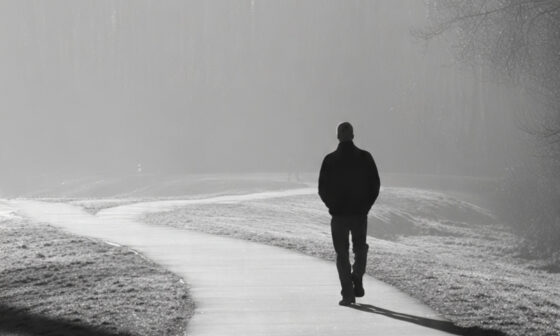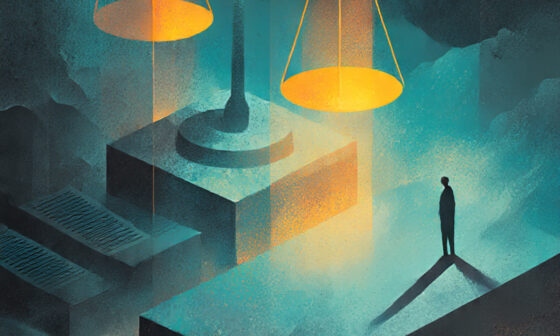Certain phrases are often used in our culture whenever a boy or young man shows vulnerability, like “Men don’t cry” and “Take it as men,” these phrases are very common and frequently used to tell boys or young men not to be upset over certain things. They may argue that they are teaching young men to be strong; however, what they’re actually doing is teaching young men and boys to shut down their true emotions, which can be both harmful and restricting.
These expressions are commonly used when a boy reveals any emotion that can be perceived as weak, such as crying after falling, being afraid, or feeling sad; this means that at the point that many teens reach adulthood, they are adept at suppressing their emotions. They’re generally restricted to an extremely narrow set of “acceptable” emotions, like anger. Since they were taught at an early stage that it’s wrong to express feelings, most men live their lives concealing their full emotions, which means they are trapped in a confined space of emotions, functioning in a lower capacity.
The expression “men do not cry” is a common and harmful stereotype that has been a source of concern for a long time. It perpetuates negative expectations about masculinity, deters emotional expression, and creates a toxic atmosphere that impacts not just men but everyone else.
Men Don’t Cry: The Historical Origins of the Stereotype
To fully understand the reason behind that “men don’t cry” saying, we must examine its historical roots. In the past, many societies have imposed strict gender roles. For instance, men are typically expected to be strong and unmoving. These values were deeply embedded in the cultures of the past and reinforced by diverse means, such as religious texts, literature, and societal standards.
Literary and Popular Culture
The rugged male hero has been a popular character in popular culture and literature for many centuries. From medieval knights to stories to the cowboys of the Wild West, male protagonists were often depicted as strong and unflinchingly emotional, setting the standards for young men.
Traditions and religion
In certain religious and cultural beliefs, emotions were thought to indicate weakness. Men were taught to tamper with their emotions and show control of their emotions as a sign of their strength.

Men Don’t Cry: Does That Mean Men Don’t Have Feelings?
The inability to express oneself completely can be extremely hurtful. Particularly, it can stop a person from creating solid emotional connections with people, which can hinder the creation of intimate bonds. This is especially true with regard to male relationships and friendships with other males. While some may find it easier to talk with a woman, especially in a romantic relationship, they may feel limited in their capacity to open up to a man who might see their behavior as “weak” when they share their emotions; this could lead to an absence of positive and enjoyable relationships. Instead of teaching boys to be strong and tough, phrases such as “man up” and “men don’t cry” can be misunderstood by boys and young men, isolating young men and causing them to be emotionally stunted and weakened, which harms them in the future.
It also affects those who might require medical treatment for mental illness at any time during their lives. As per The Journal of Counseling Psychology, men who believe in the traditional gender expectations are less likely to get help with mental health when they require it. They are also more likely to suffer from bad outcomes from treatment whenever they seek help because the mental barriers regarding what a “real man” should be doing stop them from fully participating in the treatment process. People who adhere to a misunderstood version of these statements are more likely to feel isolated, hostile, and depressed. These gender rules aren’t teaching men how to become strong; they are limiting men from leading full and active lives.
For men who have been through trauma, like sexual or domestic violence, the constant reminder of things such as “men don’t cry” as well as “take it like a man” can make it difficult to seek assistance. In order to seek treatment for any form of trauma usually requires acknowledging that you’ve been hurt in any way. Gendered norms can make it hard to acknowledge the damage due to the fact that many males and females are taught to think that “real men don’t cry,” “real men aren’t weak,” and, therefore, shouldn’t be injured in this way; they are less likely to seek assistance due to this, which can hinder them from recovering from their trauma. Another way gender norms hurt men is because they can’t access the treatment they require to heal from the trauma they might have experienced.
Men don’t cry. Men are not afraid. Yet, they also have to deal with battles and conflicts. We often overlook the suffering of some men during times of crisis. Along with causing massive social and financial problems, these crises force men to confront emotional difficulties that are not usually discussed. They often think they’re the only ones experiencing this feeling, so they say, “Why would we ever discuss the issue?” and the vicious circle starts.
The most common cause of the problem is when men lose some of the responsibilities that they previously held in their communities. Not only is losing their job an issue of shame, but it also causes a change in roles, which can lead to feelings of guilt and a loss of pride.
It is essential to communicate that both men and women confront challenges; ReelNat’s goal is to dispel the myths surrounding us and to make people aware that losing their home or job does not diminish their self-worth or cause them to think they are less. Being frightened and feeling guilty for being unable to care for and protect loved ones can be a common sentiment among men in crises, but it doesn’t make men less worthy of being men as long as they are out there doing their best to create the best for themselves and their family.
The Consequences of The “Real Men Don’t Cry” Stereotype
It is a fact that the perpetuation of this stigma has resulted in various negative outcomes for society and men overall:
Emotional Suppression
Men who misunderstand and believe in the “men don’t cry” message frequently avoid their emotions, leading to increased mental health issues and stress. This suppression of emotion can take many forms, including anger and addiction, as well as a separation from relationships.
Mental Health
The stigma surrounding masculine emotional expression may deter males from seeking treatment for mental health issues. Therefore, many remain silent, contributing to a higher incidence of suicide and depression for men.
Damaging Relationships
The inability to express emotions can affect relationships between people because it is difficult for men to effectively communicate with their spouses, friends, and family members. The emotional distance can cause misunderstandings and conflict.
The Reinforcement of Toxic Masculinity
The “men don’t cry” stereotype might be closely linked to toxic masculinity that perpetuates negative behaviors such as dominance, aggression, and the disdaining of anything that is considered “feminine.” This perpetuates the harmful gender hierarchy and creates a hostile atmosphere for all.
I am very against these consequences, so I say NO! True men cry. They are sensitive to times of hardship and don’t appear to be numb until they break down. But what do I mean by “True men cry?” I literally don’t mean shedding tears; personally, I can’t remember the last time I did, the last time I literally cried; I was still very much a boy then.
Do you remember what I wrote earlier? An inability to express yourself fully, an inability to be vulnerable, maybe because you don’t want to or because you don’t know how to, is what I mean by not crying. But real men know how to express themselves; they know how to be vulnerable, so YES, real men cry, it doesn’t make you weak neither does it make you soft. A real man is not a person who doesn’t cry; No! that is just a man waiting to snap.
Ignore the warning of a fire? Be the one to suffer the consequences. Making it appear as if you don’t have feelings doesn’t make sense. Know sadness to appreciate joy. Let anger cause you to tears and alter your life to the best of your abilities; connect with your inner sense. We have senses for a reason.
Crying here (the ability to express the vulnerability of oneself) can be healthy and essential sometimes. The act of crying to manipulate is not the same as acknowledging and releasing what needs healing. Don’t throw a temper tantrum to try and get your way or convince someone to stay, regardless of gender or age, but do not be afraid to cry and talk to someone about your feelings. Your feelings are important and are real; the same is true for others. We all feel.
Read More: Being A Man Of Your Word
Read More: The Mindset of a Cheating Man – Psychology Behind Infidelity
Read More: Why Hard Work Is Key To Success | Quotes
The Importance of Emotional Expression (Crying) for Men
It’s essential to challenge and redefine or understand the “men don’t cry” stereotype to develop an inclusive and emotionally healthy view of masculinity. Men who express their emotions offers many advantages:
Improved Mental Health
Men’s ability to let their emotions out can help alleviate the stigma around mental health problems and inspire them to seek help whenever needed. This can result in better psychological and emotional health.
Stronger Relationships
Communication that is open and expressive can improve relationships. Men who feel comfortable communicating their emotions can better connect with people at a deeper level.
Do you really want a normative perspective? The public portrays “true males” as people who provide but do not take the time to grieve until they’re allowed to behave in a catastrophic way. They’re seen as protectors, but we do not value the security of their hearts and the joy they bring to others.
True men are men who would like to be regarded by society as a person who is capable and strong, with an obvious expression of hormones, I would guess. What is it? An Adam’s apple that is prominent and facial hair? This is a biochemistry shambles. The most sexy thing is Self-respect and mutual respect, manners. Ability to express emotions and flexible thinking, the ability to care for oneself, people you love, and your environment.
A repressed grieving can turn into a de-sensitized feeling of lifelessness or extreme anger and invulnerability. Is this something we can strive for? No! Cry! Feel your feelings, grow, get better, and make good friends; make yourself a trusted friend to another. Develop a community that is ripe with compassionate and mindful care.
A person who is confident has the courage to stay honest with their feelings. A professional provides a secure space for people to grieve in the event that life happens and their body requires them to grieve without having to go over the edge of their capacity. Perhaps you are more averse to antidepressants or hospitalizations? I love to express myself and take an outdoor walk by myself, with my family and friends; you know the simple pleasures of life.
Conclusion
It is not a sign that you are weak; it indicates that you’re not affixed to people’s opinions on your personal expression. It makes you appear to be an individual with more strength. If the thought of sneezing for even a moment is uncomfortable for you, imagine the damage that holding your tears over the course of time must be doing to your body.
The stereotype that “men don’t cry” is a negative, outdated notion that continues to have a negative impact on individuals and our society. In recognizing the value of expression for men and actively challenging this harmful misunderstanding, we can move towards a more inclusive, emotionally healthy view of masculinity. We must redefine what is meant by being male and allow for openness, compassion, and emotional authenticity. By doing this, we can create an environment where everyone, regardless of gender, is able to fully embrace their emotions and lead happier, healthier lives.





